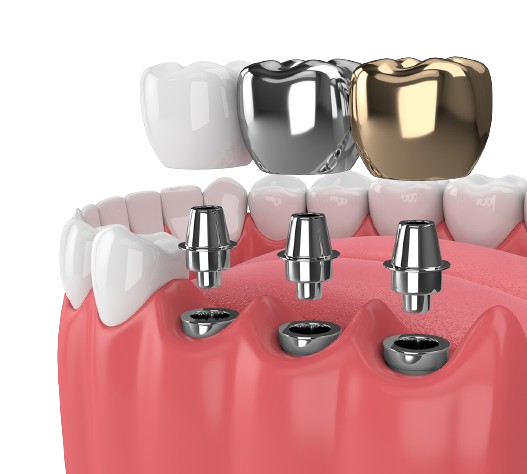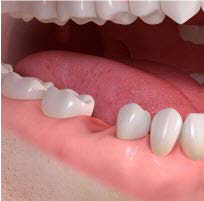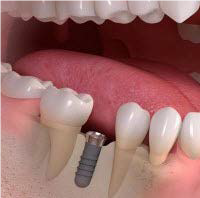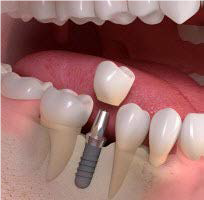Dental Implants
A dental implant is a prosthesis that interfaces with the bone of the jaw or skull to support a dental prosthesis such as a crown, bridge, denture, or facial prosthesis or to act as an orthodontic anchor.


What is a dental implant?
An artificial root that works like a natural one when a tooth and its root are missing, the long-term solution for a natural function is a dental implant and made-to-match crown.
A dental implant is a small but strong post made from biocompatible metals or ceramics. Under local anaesthetic, it is inserted into the jawbone in place of the missing tooth root and acts as a support for the tooth.
The healing phase is between 6 and 12 weeks depending on the individual medical situation. During this period the implant becomes securely attached to the jawbone – a process called osseointegration. Once healed, this artificial root acts as a base for fixing individual crowns, multi-tooth bridges, or an entire dental prosthesis.
Titanium (commercially pure) is a biocompatible metal, non-toxic and well-tolerated by the body. Its many medical uses include surgical implements and implants, where high strength and low weight are preferred. One of its most important medical applications are in implants. Those made from titanium have been shown to bond very well to living bone and can last for decades.





